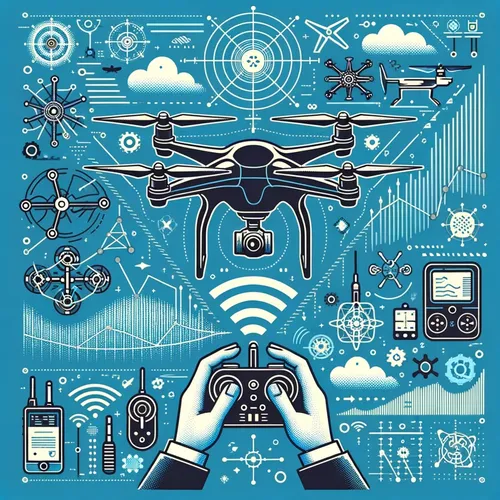Dishing Drone Dirt: Juicy Insights on Soaring Enterprise Adoption and Sizzling Market Forecasts
- Author
- Quiet. Please
- Published
- Fri 08 Aug 2025
- Episode Link
- https://www.spreaker.com/episode/dishing-drone-dirt-juicy-insights-on-soaring-enterprise-adoption-and-sizzling-market-forecasts--67298778
This is you Commercial Drone Tech: Enterprise UAV Solutions podcast.
Commercial drone technology continues to reshape the enterprise landscape, offering powerful unmanned aerial vehicle solutions for industries ranging from construction and agriculture to energy and infrastructure inspection. Enterprises are deploying drones to monitor job sites, assess crop health, inspect wind turbines, and conduct bridge surveys, achieving gains in efficiency, accuracy, and safety that are transforming traditional workflows. For example, construction firms are leveraging cloud-based management tools like DJI FlightHub to oversee project progress in real time, while agricultural producers employ autonomous drone fleets to map fields, optimize irrigation, and deploy precision crop treatments.
A growing number of organizations are tapping into drone management platforms like FlytBase and Aloft, which integrate seamlessly with existing business systems and security protocols. These platforms provide consolidated dashboards for mission planning, maintenance schedules, and automated regulatory reporting, which is essential for compliance with Federal Aviation Administration requirements such as Remote ID and Low Altitude Authorization and Notification Capability. According to FlytBase, their enterprise AI platform offers live streaming, object detection, and robust data security, making it possible to automate site surveys and inspection tasks at scale. Aloft reports more enterprises are using their FAA-approved fleet management and airspace integration to streamline compliance and enhance operational oversight.
Recent news shows global investment in drone hardware and software is accelerating. Market research from Drone Industry Insights forecasts the commercial drone market will exceed thirteen billion US dollars in annual revenue by the year 2025, with fleet adoption in the infrastructure and utilities sector growing by more than eighteen percent annually. In July, VOTIX launched a new suite of centralized cloud management tools designed specifically for large enterprise fleets, promising faster mission approvals and improved productivity. Meanwhile, SafetyCulture recently listed Azuga and Airdata UAV among 2025’s best drone management solutions, applauding their analytics and maintenance tracking features for helping businesses improve uptime and extend hardware lifecycles.
For any enterprise considering a drone program, practical next steps include evaluating software solutions for fleet management, training key staff in regulatory compliance, and setting clear protocols for data privacy and integration with legacy systems. Companies should partner with hardware vendors who meet both industry certification and interoperability needs. Security must remain a top priority, with platforms offering enterprise-grade data protection and role-based access controls.
Looking ahead, listeners can expect increased automation, advances in artificial intelligence for real-time analytics, and broader adoption of drone-in-a-box systems with edge computing. As regulatory frameworks mature and hardware costs decline, more industries will unlock new business models, from asset monitoring to autonomous delivery.
Thank you for tuning in, and be sure to come back next week for more. This has been a Quiet Please production, and for me, check out Quiet Please Dot A I.
For more http://www.quietplease.ai
Get the best deals https://amzn.to/3ODvOta
